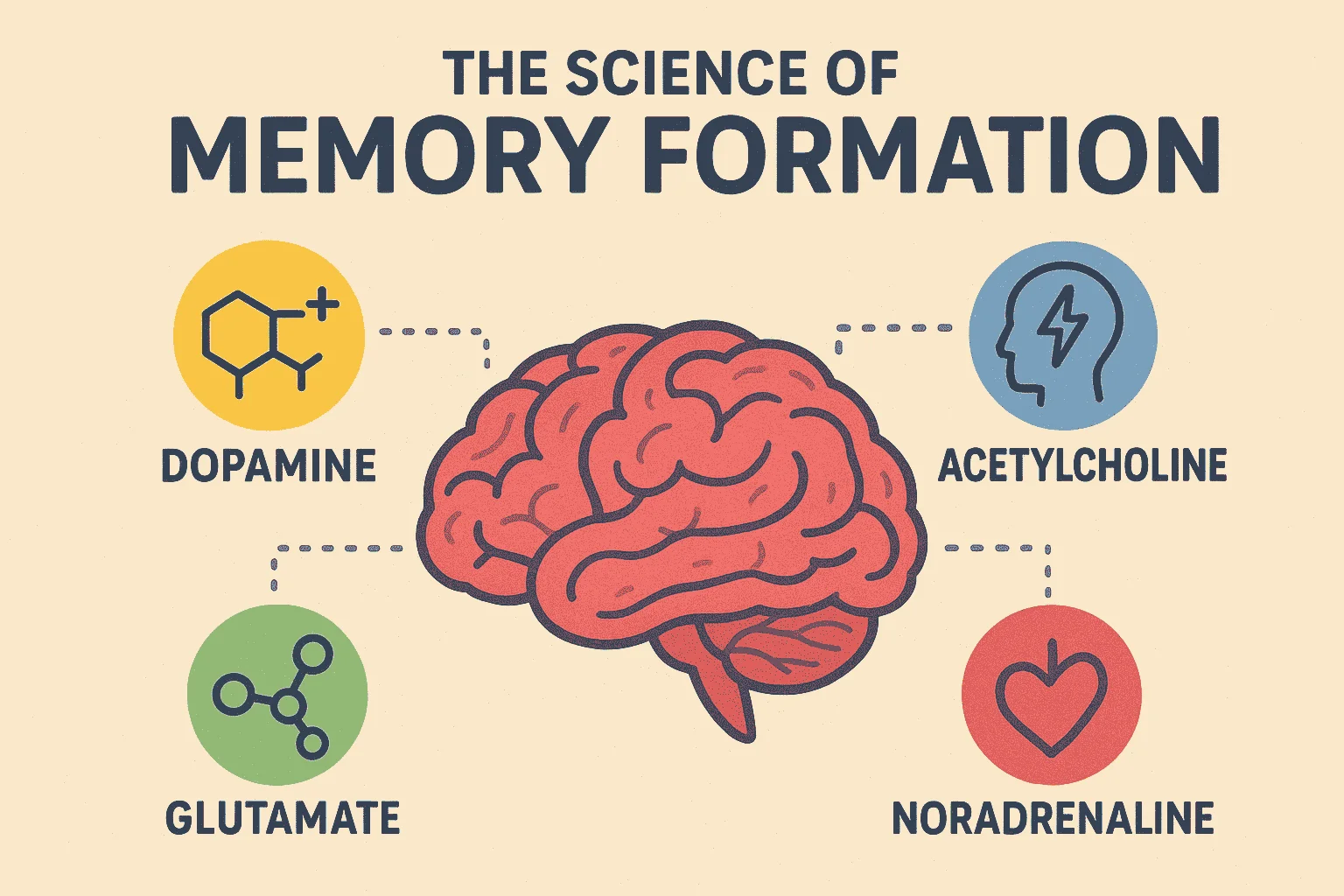Most people think memory depends on how long you study. In reality, it depends on what happens inside your brain while you study — a complex dance of chemicals that decide what sticks and what fades. Once you understand that chemistry, you can work with your brain instead of against it.
🧠 The Science of Memory Formation
Every time you learn something new, your neurons fire together and form tiny connections called synapses. If you recall that idea again later, the same neurons refire — strengthening those links. Over time, the connection thickens into a “neural highway,” which makes recall almost instant.
This process, known as long-term potentiation, is powered by a mix of chemicals — your brain’s own learning fuel.
⚗️ The Four Key Chemicals That Shape Memory
1. Dopamine — The Motivation Molecule
Dopamine is released when your brain feels rewarded. Each small success (solving a question, ticking a task) gives a dopamine burst, signaling, “this matters — remember it.”
Hack: Break your study sessions into small goals. Finishing each goal gives you a mini dopamine reward, making studying addictive rather than exhausting.
2. Acetylcholine — The Focus Enhancer
Acetylcholine sharpens attention and helps neurons communicate efficiently during learning. It’s highest when you’re alert and curious.
Hack: Begin study sessions with a short walk, cold water splash, or even upbeat music. These raise acetylcholine levels, helping new information stick faster.
3. Glutamate — The Memory Binder
Glutamate links neurons together when new connections form. But here’s the secret: those bonds only stabilize during deep sleep, when your brain replays and rewires what you learned.
Hack: Study seriously, then sleep seriously. A 20-minute revision before bed primes your brain to replay that material overnight, locking it into long-term memory.
4. Noradrenaline — The Emotional Tag
Noradrenaline is released during emotional or meaningful experiences. It tells your brain, “this is important — keep it.”
Hack: Link lessons to emotion or real-life meaning. If you’re studying business concepts, imagine applying them to your own startup or dream company. Emotional tagging multiplies recall power.
🧬 The “Neuro-Learning” Formula
To use these chemicals consciously, follow this rhythm:
-
Before studying: Wake your brain — move, stretch, or listen to energizing music.
-
During study: Teach out loud, summarize often, and mark every completed micro-goal.
-
After study: Take a two-minute review before sleep to trigger glutamate replay.
-
Weekly: Revisit older topics briefly — this strengthens the synaptic highways.
This method keeps dopamine, acetylcholine, glutamate, and noradrenaline working in sync — the perfect state for fast, durable learning.
🌙 Final Thought
You don’t need endless hours to memorize; you need the right chemistry.
When you learn with curiosity, reward yourself for progress, rest properly, and stay emotionally connected to what you study, your brain does the rest automatically.
Smart studying isn’t magic — it’s molecular.






